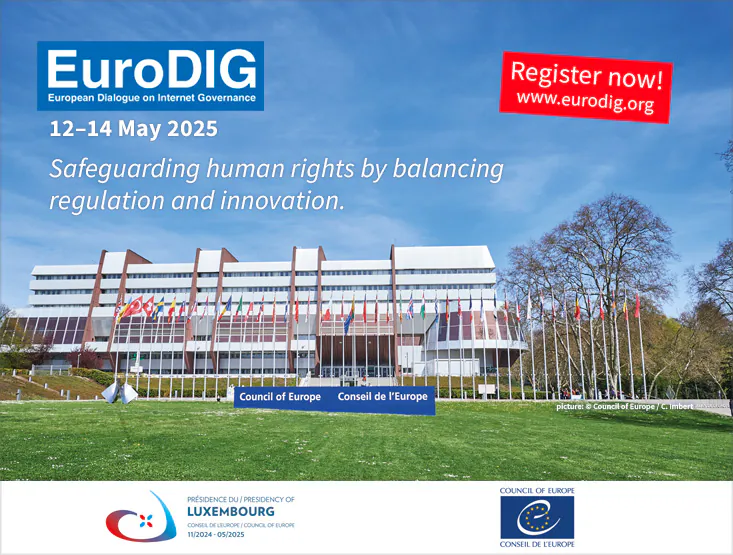EuroDIG 2025 kicks off in Strasbourg
EuroDIG is designed to promote inclusive, multistakeholder dialogue across Europe, encouraging the exchange of expertise and best practices and, where possible, identifying common positions.

Strasbourg, France — 12 May 2025 — The Pan-European Dialogue on Internet Governance (EuroDIG) 2025 officially opens today in Strasbourg, France. Running from 12 to 14 May, this high-level forum is hosted by the Council of Europe in cooperation with the Luxembourg Presidency of the Committee of Ministers of the Council of Europe.
This year’s overarching theme is ‘Safeguarding human rights by balancing regulation and innovation.’ EuroDIG 2025 gathers stakeholders from across Europe to discuss pressing issues related to digital policy and the future of internet governance.
EuroDIG serves as a unique, multistakeholder platform that promotes open dialogue among governments, civil society, academia, the technical community, and the private sector. The event facilitates the exchange of expertise and best practices while seeking common ground on key policy challenges. It brings together national perspectives and helps define and advance European values in the digital sphere. As a year-round process, EuroDig culminates in this annual gathering of decision-makers and thought leaders.
Comprehensive session coverage is being provided by Digital Watch Observatory, a platform operated by the DiploFoundation. At the following link, you can access detailed reports on each session, generated by Diplo’s AI reporting system and reviewed by expert editors.
At the conclusion of the event, organisers will publish the official Key Messages, summarising the main takeaways and points of consensus.
For more information and to follow updates, please visit the official EuroDIG website: www.eurodig.org
Why EuroDIG matters for civil society:
EuroDIG is important because it gives civil society a voice in shaping digital policy at the European level. It enables dialogue with governments, the private sector, and experts, helping protect rights like freedom of expression and privacy. It also offers space for networking and joint advocacy for transparent and fair internet governance.


